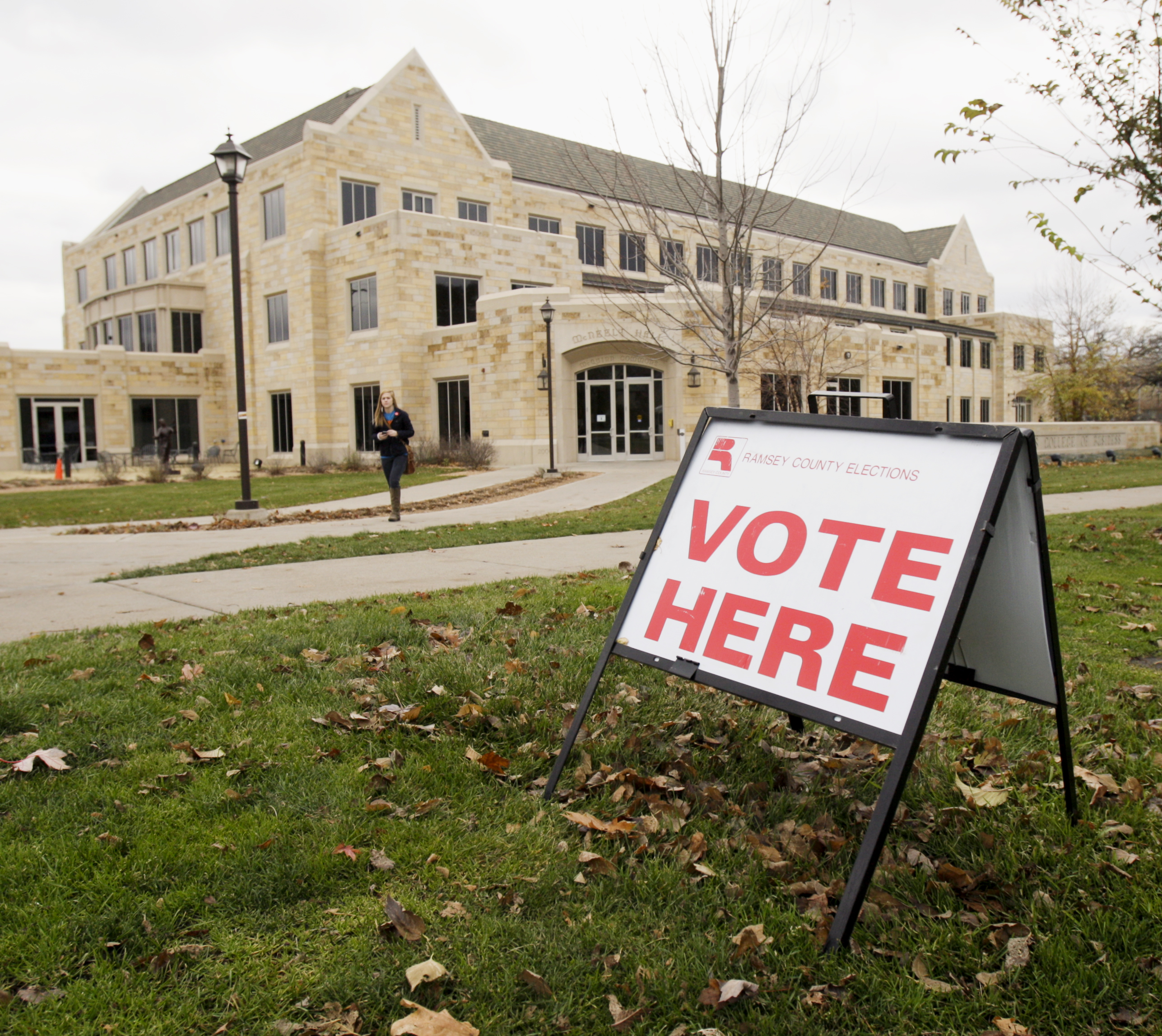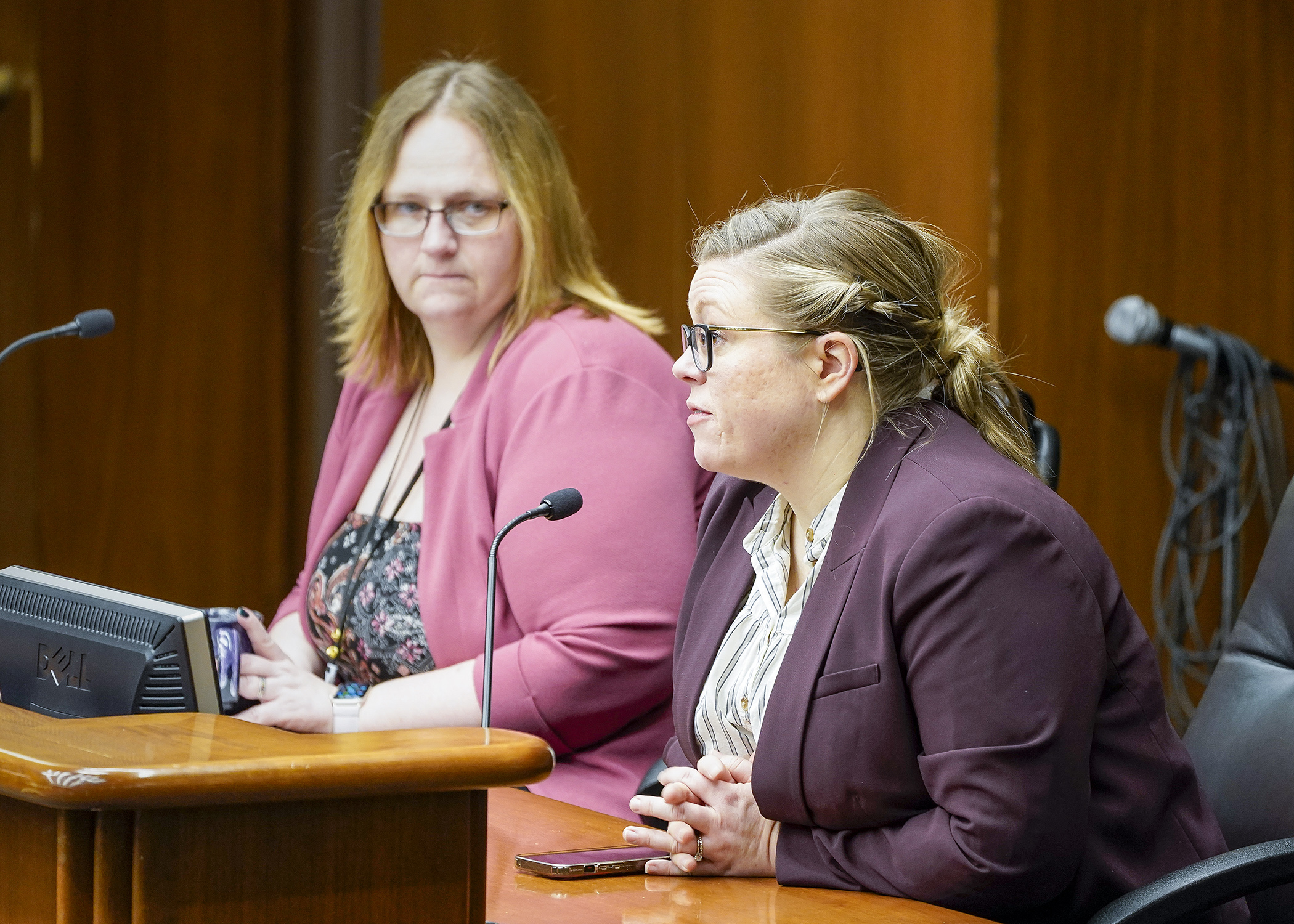Grant money proposed to improve polling place access

Voting is a fundamental right, yet it is not always easy for folks who have a physical or communication disability.
A narrow doorway, steep steps or lack of a curb cut can be problematic for someone who uses a wheelchair; others could have a polling place problem if an audio voting machine is not available.
“Ensuring (people with a disability) have equal access to polling locations is really important,” said Rep. Kim Hicks (DFL-Rochester).
She sponsors HF2746 that would provide a onetime $500,000 appropriation to the Office of the Secretary of State in fiscal year 2024 for grants to counties and municipalities to improve polling place access for individuals with a disability. Hicks said similar grant amounts have been allocated in previous years.
 Nicole Freeman, government relations director for the Office of the Secretary of State, answers a question during the House Elections Finance and Policy Committee discussion of HF2746. Rep. Kim Hicks, left, is the sponsor. (Photo by Andrew VonBank)
Nicole Freeman, government relations director for the Office of the Secretary of State, answers a question during the House Elections Finance and Policy Committee discussion of HF2746. Rep. Kim Hicks, left, is the sponsor. (Photo by Andrew VonBank)The bill was held over Wednesday by the House Elections Finance and Policy Committee for possible omnibus bill inclusion.
“We can send a message to people with disabilities that their opinions and their votes matter, and that we value their contributions to our democracy. And we can set an example for other states and communities around the country, showing them what can be achieved when we work together to promote accessibility, inclusion, and equity for all,” wrote Trevor Turner, public policy director for the Minnesota Council on Disability.
Nicole Freeman, government relations director for the Office of the Secretary of State, said local election administrators have indicated things like portable ramps and accessible voting booths are reaching the end of their useful life. Additionally, Hicks said some voting locales are grandfathered in from ADA requirements due to age and other components.
The bill does not specify grant minimums or maximums, nor does it require cost-sharing. However, Freeman said locals oftentimes contribute financially because total statewide needs have traditionally exceeded available funds.
Related Articles
Search Session Daily
Advanced Search OptionsPriority Dailies
Speaker Emerita Melissa Hortman, husband killed in attack
By HPIS Staff House Speaker Emerita Melissa Hortman (DFL-Brooklyn Park) and her husband, Mark, were fatally shot in their home early Saturday morning.
Gov. Tim Walz announced the news dur...
House Speaker Emerita Melissa Hortman (DFL-Brooklyn Park) and her husband, Mark, were fatally shot in their home early Saturday morning.
Gov. Tim Walz announced the news dur...
Lawmakers deliver budget bills to governor's desk in one-day special session
By Mike Cook About that talk of needing all 21 hours left in a legislative day to complete a special session?
House members were more than up to the challenge Monday. Beginning at 10 a.m...
About that talk of needing all 21 hours left in a legislative day to complete a special session?
House members were more than up to the challenge Monday. Beginning at 10 a.m...